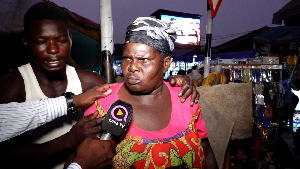Ghana is in danger of losing its way in the forest of disinformation. Spin doctors across the political divide, especially those sympathetic to the NDC government are leaving no stone unturned in their quest to pull the wool over the public eye. This is bad and very unhealthy for the nation in an age of Information boom due to technological advancement. The NDC spin doctors who have been busy caricaturing the previous administration officials with innuendoes and unproven allegations seem to have moved a gear higher with massaging economic figures. Where will it end? Many Ghanaians have a culture of jumping on a bandwagon without checking the wheels; but at least in the distant past, those at the wheels were not as mischievous as the spin doctors of today, so the danger was at a minimum. For an MP to use false economic figures to sway the nation to his party’s cause is breathtaking! It is six months after the end of election, but it feels like the campaign to win votes has not ended for the NDC party machine, which continues to play dirty politics.
I was astonished to read in this forum yesterday (01/06/09) an article captioned `` The NPP Party on trial’’ by MP, who used dubious primary economic figures, muddled through secondary ones and concluded by questioning the economic competence of the Kuffour-led administration. He started by saying the inflation figure at the end of Rawliings-led government was speculated to be 22.8%. He then went on to spit out other economic data during the Kuffour-led government with the certainty that only authentic source can deliver. Why he could only obtain speculated figure for the period immediately preceding the Kuffour-led government but somehow managed to get the actual economic data during Kuffour-led government is open to interpretation. The writer gave the impression that he sourced the primary economic data regarding the Kuffour-led administration from the National Statistics Office for Economics but mysteriously the same office could not supply him with data regarding the Rawlings-led government; so he decided to use the speculative figure, with the subtle tone of casting doubt on it. This immediately set alarm bell ringing in my mind that the MP was up to some statistical tricks with a questionable source for his economic data. Every nation has dedicated civil servants whose job it is to compile the national statistics on a range of issues including economics, and Ghana is no exception. These statisticians didn’t just pop up, when Kuffour assume leadership, so the inflation figure the MP sought could have been made available to him if he had gone to the correct and authentic office instead of using a speculative figure. After reading the entire article, I was in no doubt the economic figures were lifted from the Office of NDC spin doctors. And here is my reason.
His first gaffe was to allude to the debt service relief as actual cash by giving the Net Present Value (NPV) of the relief. This is what the MP stated for public consumption`` the nation also had a national debt stock of $7.5 billion, out of this amount $ 5.8 billion was external and $ 1.7 billion was considered domestic. Under the enhanced HIPC initiative program by both the World Bank and the IMF, Ghana was able to secure $3.7 billion in debt service relief for its Ghana Poverty Reduction Strategy program also known as the GPRS. The $ 3.7 billion had an equivalent net present value of $2.31 billion.....’’.
`` The Ghana Poverty Reduction Strategy draft indicated that the HIPC Initiative relief will be directed primarily on education, health, programs to improve services, infrastructure in the rural sector and improved governance. A portion of the relief will be used to further reduce the heavy burden of the domestic public debt. The International Development Association promised to deliver an estimated amount of $718 million in debt relief to Ghana over a 20 year period, with the IMF promising to deliver an amount of $112 million with an immediate effect’’.
The NPV is a measure of the actual future net cash flows over a period discounted to the present value with an effective rate of interest (i.e. inflation adjusted interest rate pertaining to the cash flows). The debt service relief is not an actual cash flow so it cannot be discounted to the present value with an imaginary effective rate. I will be interested to know which rate he used to discount the imaginary cash to arrive at that figure; and whether the speculative inflation rate was used in some shape or form to adjust the nominal rate. The relief on debt service is like depreciation of an asset, only they stand on opposite ends. Debt service is merely the charges or interest payments on debt, so when there is a relief for these charges, all it means is a reduction or removal of the interest rate payments. If you stop paying interest on your debt, it doesn’t mean you’ve received cash equivalent of the interest charge; what it means is that the burden of having to cough out money on interest payment has minimised. Why then, did he give the impression that Ghana would receive a cash sum equivalent to the Debt service relief from the International Development Association and the IMF?
He ridiculed the Kuffour- led government for not investing wisely in Education, Health and other economic infrastructure required by the nation with his imaginary sum. The MP didn’t bother to give comparative figures from previous administration prior to Kuffour, so it was difficult to see what he was measuring the Kuffour- led government economic competence with. Let me educate him on this matter. Ghana issued bonds, in addition to the revenue from taxation; to raise the cash it needed at the time to meet her Expenditure requirements. The cash was not handed to the Nation on a platter as the MP was implying. The Debt service relief merely removed the nation’s burden of interest payment but did not hand cash to Ghana. If a nation needs money and the usual channels for raising the cash, like taxation, is not sufficient, it borrows by issuing bonds or other financial instruments or from other financial institutions. Kuffour ‘s ability then, to make any meaningful progress in Education programs as the MP wanted was constrained by how much the nation could afford, given the different demands on the Budget income. It is unfair to expect the Kuffour-led government to turn the education system around in 8years, after decades of a run down by Rawlings-led government.
The second gaffe was his difficulty in distinguishing between the Gross Domestic Product (GDP) and the Budget income that a nation can spend. Some readers, in particular Sarpong put this MP on the spot by asking him to define GDP. For those readers who were wondering what all the fuss was about regarding the economic sparring match between the MP and Sarpong on the GDP issue, let me enlighten you. The GDP is the aggregate (i.e. the sum) value of all the goods and services produced by a nation together with the net export (i.e. Export minus Import) value. It is like the Gross profit of a company and like all profits calculated in the profit and loss account, the size of the GDP is not equivalent to cash of similar size. The reason is simple; there are certain accounting conventions that allow certain items, which are not actual cash, to be treated in the profit and loss account. Hence the eventual profit to the company is not wholly cash. Similarly a nation’s GDP is not restricted to the government’s product and services, it consist of private sector product and services as well. So when the private sector make profit from its’ product and services, only a fraction of the cash to the private sector finds its way into the coffers of the nation in the form of taxation. So the GDP size is a mere indicator of a nation’s wealth but it does not translate into cash of equivalent size to the nation. Budget income, on the other hand, is a plan for raising actual cash for the expected National Expenditure for a specific period. So if at the end of a budget period there is a deficit this represent an actual cash loss or potential loss to the nation. However, the budget deficit cannot be set against the nation’s reserve in gold or foreign currency as the MP attempted to do.
He submitted this `` Ghana's reserves of foreign exchange and gold was registered at $2.301 billion in 2008 and so if one was to subtract the budget deficit of $ 1.5 billion from this figure, the total of Ghana's reserves of foreign exchange and gold would amount to a mere $ 800 million, which is a disgrace, but then who said that the NPP government was good in adding up, let alone in the proper management of a economy?’’
Accounting convention prohibits this form of treatment of budget deficit being netted against some gold reserve or foreign currency. It is like netting a negative net current asset against some reserve in the Balance Sheet of a company. It serves no useful purpose. The size of the Nation’s Reserve in gold or other currency does not alter an iota with a budget deficit in the Balance of Payments Account (i.e. an account that list all the nation’s assets and liabilities including reserves). This was a clear attempt to twist figures to make a situation look worse than what they really were. The MP grudgingly conceded that there were actual economic growths from the poor base that Kuffour took charge of the nation’s economy. But in the same breath, he chided the Kuffour-led administration for squandering the opportunity the growth presented by allowing the nation’s taste for foreign commodities to swallow a huge slice of the gain. This is what he had to say `` In year 2001 our GDP was $ 3.94 billion, however due to the high demand in our raw materials, this figure was significantly improved from $ 3.94 billion in 2001 to $16.1 billion at the close of 2008, thus realizing a gross nominal income difference of $12.16 billion, however at the close of 2008, $9.816 billion of this income had been spent importing commodities, plus an additional amount of $1.2 billion being used to re-denominate the Cedi, thus leaving the NPP government with only a net profit of $1.16 billion after all this trade to bank, whilst this amount could've much more.
It is a fallacy to hang the growth of the GDP on price inflation. The Kuffour-led government kicked start the economy by injecting some much-needed investment on several fronts of the economy. This raised the tempo for economic activities in the country; Kuffour raised the profile of the nation on the global stage and foreign investors took a cue, from the confidence he exuded. Ghana, under Kuffour, became a magnet for investors from abroad and they all played their part in accelerating the growth in economic activities that consequently saw the GDP rise. The booming economy under Kuffour saw the cedi stabilise against several major currencies for a long period that removed the wide price fluctuations in the export /import market, that the market experience under the Rawlings-led government. This again engendered confidence in the profit margins for the export commodities.
I hate sounding like a defender of the NPP cause; but I hate it more when the truth is being distorted to fit a political agenda. So here is a friendly advice to the MP and for that matter anybody, using false economic data to make a case for their party, please, resist the temptation, because it does a great disservice to the nation. Kwaku Frimpong














